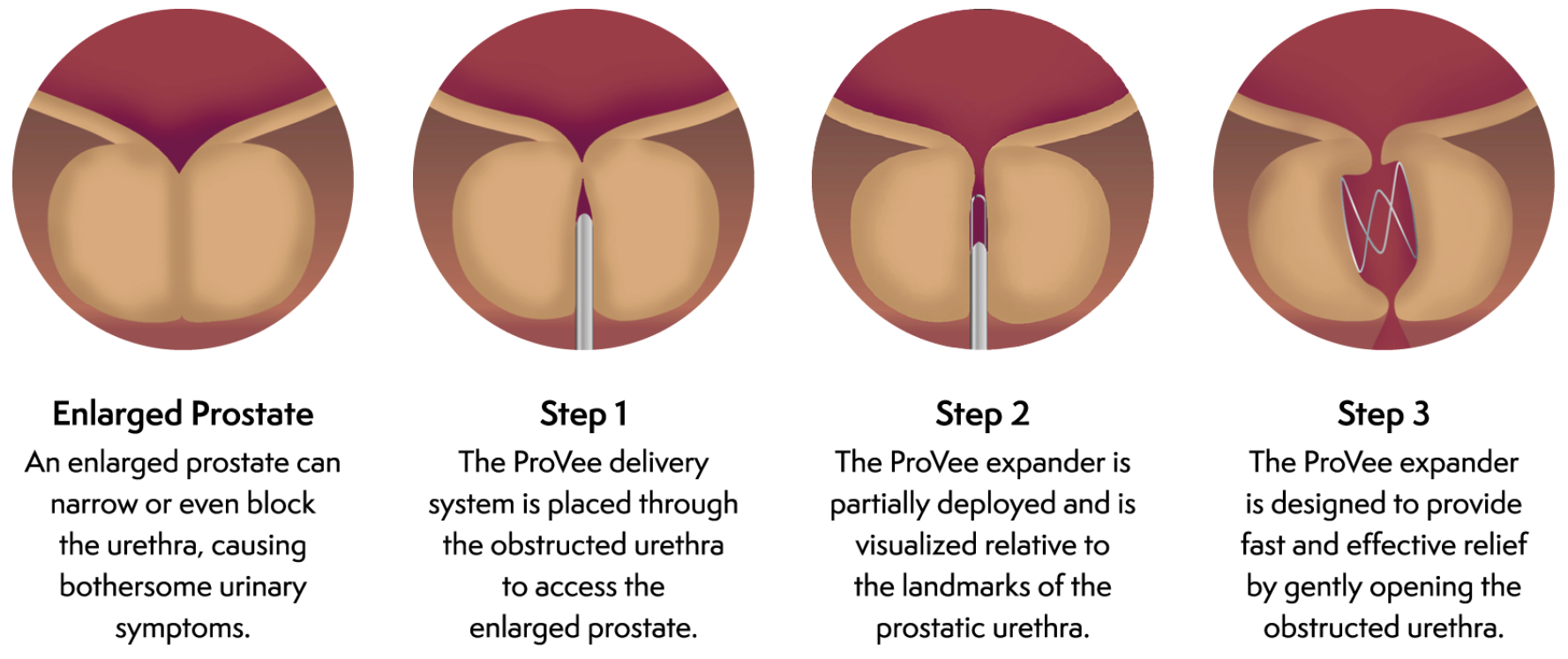ProVerum, spun out of Trinity College Dublin, has developed a treatment for benign prostatic hyperplasia, a common condition affecting men over 50.

Benign prostatic hyperplasia (BPH) causes the prostate to become enlarged — though not cancerous — and obstructs the urethra, leading to problems around urination, ranging from a frequent and urgent need to use the bathroom to not being able to fully empty the bladder.
There were 94 million cases of BPH globally as of 2019 and the condition becomes more common with age — half of all men over 50 have it, and 90% of men over 80 live with the condition. The two common treatment routes are drugs — which come with side effects that mean 60% of BPH patients stop taking the medication within a year — and surgery — which is invasive, requires patients to use a catheter for three days and can lead to complications like heavy bleeding or erectile dysfunction, and patients may relapse.
Trinity College Dublin spinout ProVerum Medical is hoping its less invasive solution, ProVee, can offer relief. The device is an expander, made from nitinol (nickel titanium), that gently reshapes the enlarged prostate.
Read more about Ireland’s ecosystem in our report and other spinout case studies:
Spinout factories: why Ireland’s universities punch above their weight
How Equal1 is building a desktop quantum computer
AudioSourceRe pitches sound separation using AI
ProVerum isn’t the only company in this space — Israel-based ProArc Medical, for example, has also developed a minimally invasive procedure — but the Irish spinout says its low-profile, flexible delivery system with integrated imagery is the thinnest on the market. Importantly, the procedure could be done in a doctor’s office once the device is commercially available.

Conor Harkin, co-founder and chief scientific officer of ProVerum, explains that “ProVee gently opens the blocked water passage within the prostate”. The hope is this procedure has fewer adverse effects and complications compared to hospital surgery.
Harkin founded ProVerum together with chief technology officer Ríona Ní Ghriallais when, he says, “we decided we wanted to tackle the issue of BPH after immersing ourselves in the hospital environment. We spoke to a lot of doctors and patients who provided the first port of call for much-needed solutions to this problem that are less invasive.”
Ghriallais elaborates: “We started the project in Trinity with a commercialisation plan from Enterprise Ireland. The bioengineering labs in Trinity College Dublin where the funding went is where we ended up working closely as an initial base.”
The tech transfer office made sure patents were filed and the IP could be developed, meaning future funding was easier to secure. As for initial funding, being part of Trinity College meant ProVerum was well-placed to access options like EIT Health. All in all, the university “got us through the first five years of our company’s journey, which we are truly grateful for”, Ghriallais says, and it allowed the company to grow and become more independent from campus resources.
We decided we wanted to tackle the issue of BPH after immersing ourselves in the hospital environment. We spoke to a lot of doctors and patients who provided the first port of call for much-needed solutions to this problem that are less invasive.
Conor Harkin
Harkin adds: “The massive market opportunity, as well, was an attractive proposition for our team and attracted significant investors too. Investors knew we had cracked this potentially big multinational field with an excellent product, but fundamentally we launched our product to help thousands of men out there.”
Those investors include Atlantic Bridge as well as Gilde Healthcare and Lightstone Ventures, who have contributed to $40.5m in funding to date. Its latest round, a series A, brought in $32.9m in 2022.
Harkin notes that Atlantic Bridge has been an important partner beyond financing, too: “Most of our introductions came from Atlantic Bridge who have been very important to us as they specialise in supporting and spinning out companies which was a great seal of approval.”
The spinout has also built relationships with strategic partners, especially clinicians, who are collaborating on studies.

Enterprise Ireland: a key player in the ecosystem
Like many companies in Ireland, ProVerum has an important partnership with government agency Enterprise Ireland, responsible for helping startups enter and scale in overseas markets. “Engaging with Enterprise Ireland early opened us to this connected network of potential investors and scientific guidance,” says Ghriallais. “The university’s commercialisation fund led to further investment from Enterprise Ireland too and without a doubt both of these bodies got us over the line from a university project to spinout success and further raising our financials.”

But cash is still king for any young company and, Harkin says, “funding allowed us to become smarter. We were able to grow our team to execute a real product milestone. It gave us the firepower to do a 225-patient study in the US and Europe which further backed our product, so it pushed us to a stage where we can get regulated approval where we can then go to market and generate revenue.”
And investors recognise that a smaller company can offer an edge in medtech. Ghriallais says: “Medical device startups tend to have a small team, like our company has around 27 individuals now, but this is still a very small number. Our ability to work together and efficiently has meant it has taken us only eight years to bring the product to market which is not something that large corporations can necessarily do.
“We have the expertise that is needed to get the job done in smaller systems and we have easier access services to what we need to get the job done quickly because we do not have the burdens that large organisations have.”
She concludes: “We both come from different backgrounds but this journey has opened us to many types of experiences from manufacturing to clinical trials, but providing patients with a solution has been a game changer for us. We all have brothers, fathers and uncles that may struggle with this issue so providing an alternative form of treatment has been highly fulfilling.”
Read more about Ireland’s ecosystem in our report and other spinout case studies:
Spinout factories: why Ireland’s universities punch above their weight
How Equal1 is building a desktop quantum computer
AudioSourceRe pitches sound separation using AI








